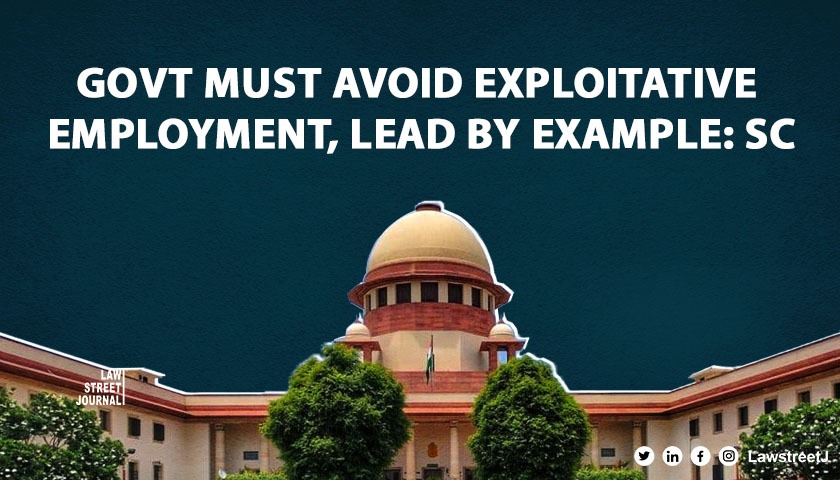NEW DELHI: The Supreme Court has said the government institutions, entrusted with upholding the principles of fairness and justice, bear an even greater responsibility to avoid exploitative employment practices, seen in the private sector with the rise of gig economy.
SC Calls for Fair Employment Practices to Combat Exploitative Trends in Gig Economy
A bench led by Justice Vikram Nath said it is imperative for government departments to lead by example in providing fair and stable employment.
The court expressed its concern over a disconcerting reality that temporary employees, particularly in government institutions, often faced multifaceted forms of exploitation.
Temporary Government Jobs Under Scrutiny: Supreme Court Urges Regularization
The bench, also comprising Justice Prasanna B Varale, said pervasive misuse of temporary employment contracts reflects a broader systemic issue that adversely affects workers' rights and job security.
"In the private sector, the rise of the gig economy has led to an increase in precarious employment arrangements, often characterized by lack of benefits, job security, and fair treatment. Such practices have been criticised for exploiting workers and undermining labour standards," it said.
The court said when public sector entities engage in misuse of temporary contracts, it not only mirrors the detrimental trends observed in the gig economy but also sets a concerning precedent that can erode public trust in governmental operations.
The bench viewed engaging workers on a temporary basis for extended periods, especially when their roles are integral to the organisation's functioning, not only contravenes international labour standards but also exposes the organisation to legal challenges and undermines employee morale.
"By ensuring fair employment practices, government institutions can reduce the burden of unnecessary litigation, promote job security, and uphold the principles of justice and fairness that they are meant to embody. This approach aligns with international standards and sets a positive precedent for the private sector to follow, thereby contributing to the overall betterment of labour practices in the country," the bench said.
In its judgment, the court quashed the 2018 termination order issued against four cleaning workers and a gardner by the Central Water Commission.
It noted they rendered decades of services, essential in nature. The court directed for regularising Jaggo and other workers albeit without backwages.
"While the foundational purpose of temporary contracts may have been to address short-term or seasonal needs, they have increasingly become a mechanism to evade longterm obligations owed to employees," the bench said.
The court noted in the case, the High Court placed undue emphasis on the initial label of the appellants’ engagements and the outsourcing decision taken after their
dismissal.
The court emphasised the courts must look beyond the surface labels and consider the realities of employment: continuous, long-term service, indispensable duties, and absence of any mala fide or illegalities in their appointments.
"In that light, refusing regularisation simply because their original terms did not explicitly state so, or because an outsourcing policy was belatedly introduced, would be contrary to principles of fairness and equity," the bench said.
The bench also said its previous judgment in Secretary, State of Karnataka vs Uma Devi (2006) sought to curtail the practice of backdoor entries and ensure appointments adhered to constitutional principles but it was regrettable that its principles are often misinterpreted or misapplied to deny legitimate claims of long-serving employees.
"Government departments often cite the judgment in Uma Devi case to argue that no vested right to regularization exists for temporary employees, overlooking the judgment's explicit acknowledgment of cases where regularisation is appropriate. This selective application distorts the judgment's spirit and purpose, effectively weaponising it against employees who have rendered indispensable services over decades," the bench said.















